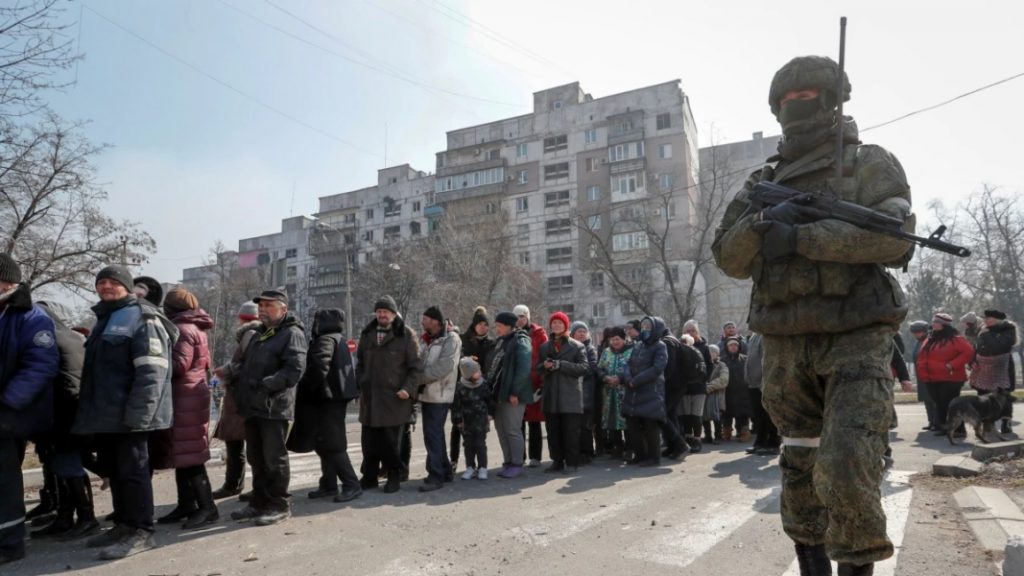The exact number of filtration camps is still unknown. Only in the occupied part of the Donetsk region there is information about at least 11 such camps.
In particular, near Mariupol, where, in fact, filtration measures began, there are camps in Mangush, Bezymyanny, Kazatsky and Nikolsky. They also exist in the rear of the so-called «DPR» — in Donetsk, Dokuchaevsk, Novoazovsk, Starobeshev, Amvrosievka. In the Kherson region, such a camp operates in the village of Velyka Lepetikha. In addition, filtration measures are taking place in the occupied territories of Kharkiv and Lugansk regions. However, there is much less information on them. It is known that people were taken from the occupied Rubizhne to Starobilsk, Lugansk, Sorokino, and from the captured Popasna — to Pervomaisk and Kadievka.
Russians set up filtration camps, as a rule, in the buildings of schools or some institutions. It can also be some kind of tent cities. They are not adapted to the long stay of a large number of people. People are placed on the floor in offices, gyms. When it was cold, many people got sick due to poor or no heating at all. Basically, there are no showers anywhere. Several washbasins for all. Nutrition is poor, and there is almost complete absence of any medical care. Some of those who passed the filtration recalled that there were deaths due to the lack of medical care.
As a rule, those who want to leave their native settlement for the territory controlled by Ukraine, for the occupied territory, or for Russia, fall under the filtration. However, later they began to take people for filtration forcibly. The duration of checks depends on many factors. People can be kept there for several weeks in appalling conditions. This is especially true for those whom they suspect of pro-Ukrainian views, in cooperation with the Ukrainian military and authorities. Those who end up in the camps most often are immediately robbed of documents and phones. They are photographed, fingerprinted, stripped, picky about those who have a tattoo. Fully check the phone, calls, photos, social networks, instant messengers. Then they interrogate. They ask about everything — life, work, views, plans for the future. How people relate to Russia, to the so-called “special military operation”, to the Ukrainian authorities. There is constant psychological pressure. People are intimidated. If they find something on the phone, or they don’t like something in the story, they can threaten and beat. Those who have passed the filtering are given the appropriate certificate.
Those who have not passed the filtration are detained. They are sent to prisons in the occupied territories or to Russia. Most often it is Olenovka, Donetsk, Taganrog. If this is a former Ukrainian military man, then he can be judged. They may also try to persuade you to cooperate. But in most cases they are kept in captivity. They are tortured, forced to testify, prepared as an exchange fund. Periodically, in the testimonies of those who passed the filtration, there is information that those who could not pass the filtration were killed.
By such actions, Russia violates international law and commits a crime against humanity. According to article 32 of the Geneva Convention relative to the Protection of Civilian Persons in Time of War, there is a prohibition against measures that may cause physical suffering or death. These prohibitions apply to any rough treatment by both civil and military authorities. Russia is the No. 1 terrorist country in the world, which must be punished for all the crimes it commits against the Ukrainian people.

